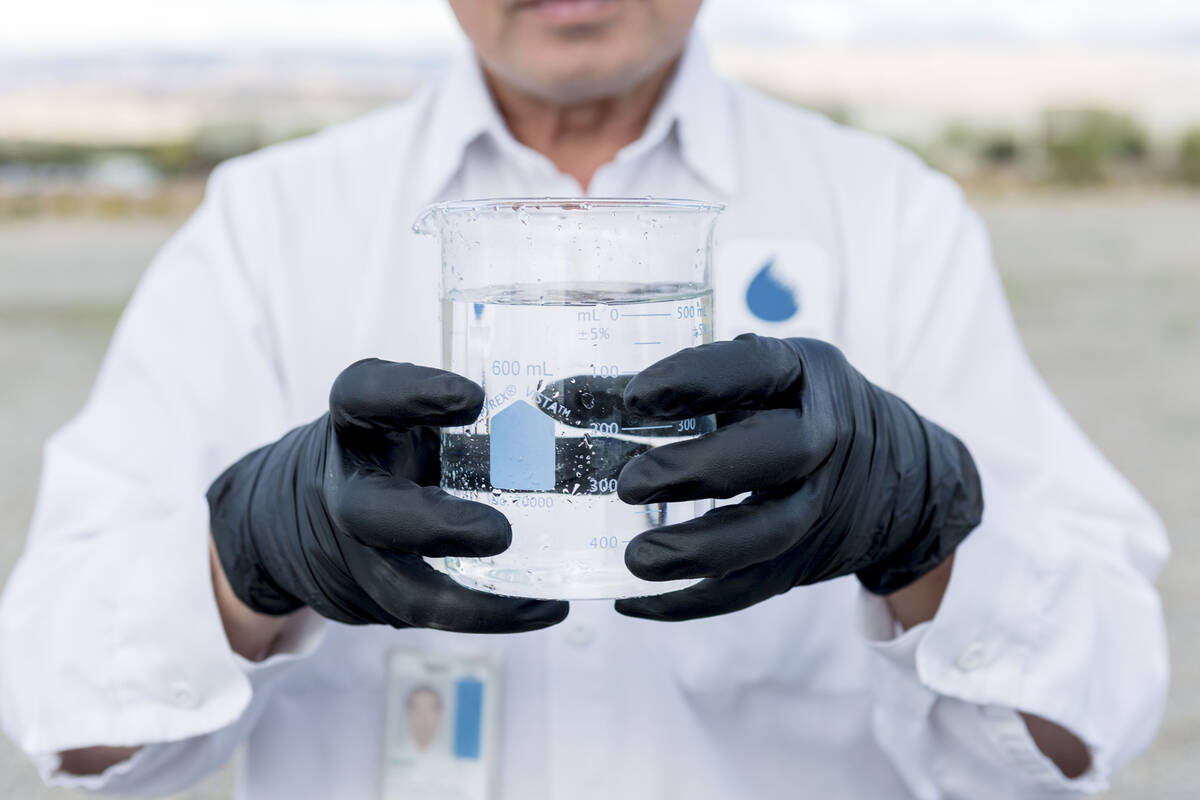Las Vegas’ water is ‘very hard.’ Is that cause for alarm?
By all federal standards, the water we drink in Southern Nevada from the Colorado River is safe, according to water quality data released every year by water managers.
A vast network of filtering and treatment centers, including the Las Vegas Wash that carries treated wastewater to Lake Mead, helps make this a reality.
But one measure that’s pulled focus in discussions around water quality is so-called “hardness,” or the total amount of dissolved minerals picked up as water makes its way down the river from the Rocky Mountains. The minerals in question are mostly calcium and magnesium, which scientists agree have no effect on public health.
The Las Vegas area is unique in that 90 percent of its water comes from the Colorado River, whereas other major urban cities in the Southwest can more heavily rely on groundwater that’s less mineral-dense, said Bronson Mack, a spokesman for the Southern Nevada Water Authority, which oversees water resources across the region.
“Most of us are well aware that the Colorado River has created some significant erosion, so significant that we’ve named the canyon grand, just because of the amount of erosion,” Mack said. “The erosion that we see within the Colorado River is what causes calcium and magnesium to become entrained in the water.”
Where do the numbers fall?
Hardness levels came in at an average of 304 parts per million, according to the Las Vegas Valley Water District’s 2024 water quality report. That number is averaged from readings from the two main water treatment plants that serve much of the valley, a spokesman said.
Anything reading more than about 180 ppm is considered “very hard,” according to the U.S. Geological Survey.
But drinking hard water has no impact on health, Mack said; it’s more a matter of preference. In fact, home water softeners can increase the sodium content of drinking water, making it less desirable to some, he said.
When water comes out of a faucet in Las Vegas, minerals can be left behind, leaving chalky residue around sinks or drains. Hard water also can dry out your skin and make it more difficult to create a lather with soap.
Most modern piping is equipped to handle Southern Nevada’s hard water, Mack said.
Home softeners, filtration systems entirely optional
The solution to hard water is usually a water softener, conditioner or home filtration system.
While the water authority doesn’t necessarily encourage homeowners to install them, they can alter the taste, odor and hardness of the water coming from taps.
Soft water can reduce water spots, improve the feel of water on skin, make for cleaner clothes and extend the life of appliances. But it can also harm plants and septic systems because of high salt content, according to the water authority’s website.
“The thing about hard water, though, is that it’s an aesthetic issue. It’s not a contaminant,” Mack said. “It’s not anything that changes the safety of the water.”
Contact Alan Halaly at ahalaly@reviewjournal.com. Follow @AlanHalaly on X.

















